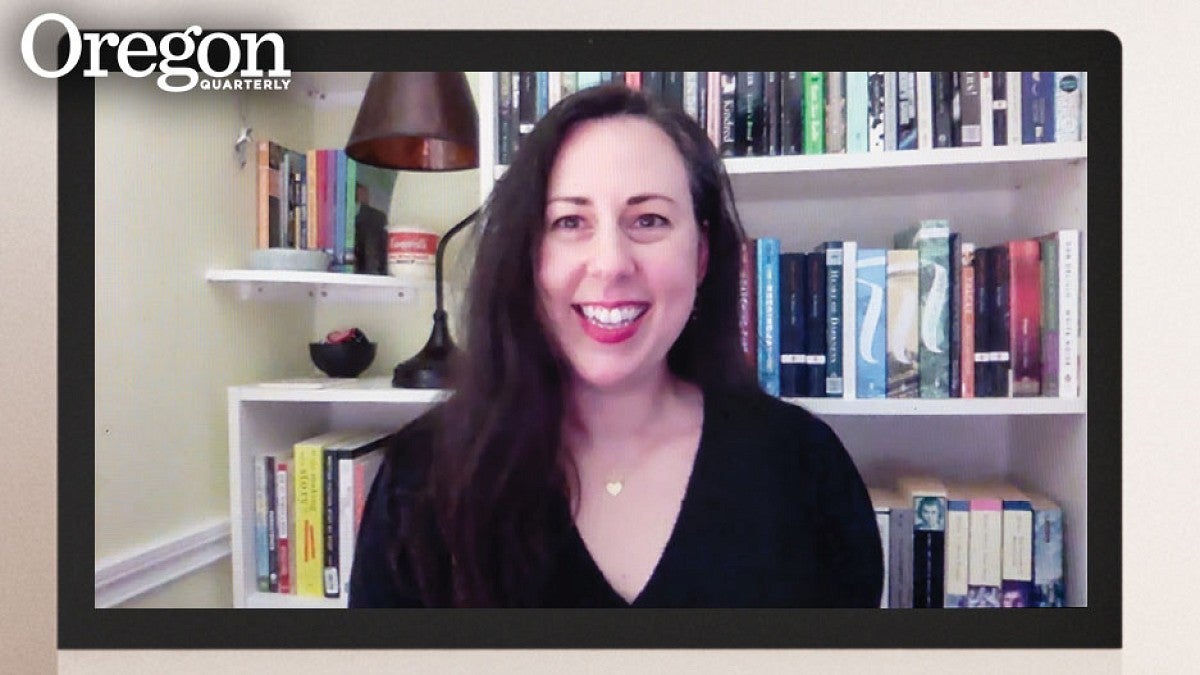Students often learn best when they learn from each other. Kara Clevinger is making it happen, despite a global pandemic.
Or more accurately, because of a global pandemic: with the temporary shift to remote teaching, the assistant department head adopted methods that are inspiring students and educators alike. Clevinger is playing to strengths of the online realm, bringing students together for courses—she teaches composition and 19th-century American novels—and also the human connections people need to be healthy, especially in a time
of isolation.
Working with colleague Nick Recktenwald, Clevinger last spring guided peers through the herculean job of redesigning classroom-based curricula for computers and laptops. For students, she incorporated thought-provoking online discussion boards for each assignment; the give-and-take between students posting comments and exploring each other’s ideas quickly became so enriching her own conversation prompts went unnoticed.
For her efforts, Clevinger received a UO Remote Teaching award.
“With online instruction, students have much more time to process questions and think about their responses,” Clevinger says. “It’s also more democratic—it’s not just whoever is the bravest and speaks up in class, everybody is speaking and everybody’s voice has the same weight.
“Peer-to-peer interaction is so helpful to their learning—they raise the level for each other. My students are producing far better writing in my online classes than my in-person classes because of that engaged discussion. It’s so cool to see.”
CONNECTING OVER KANYE
Clevinger also established a discussion board for nonacademic purposes. Students can weigh in on almost anything that comes to mind.
“It’s basically, ‘Hey, what are you doing to keep sane during this pandemic?’” Clevinger says. “Students have shared their paintings or that they’re learning to play guitar—we’ve had a conversation about best Kanye West albums, and I’ve learned what’s cool for me to stay young and hip. It’s important they feel connected. It helps all of us persist through this—I draw inspiration from them, too. If they can keep going and stay positive, I can too.”
PRIORITIZING PRACTICE
Becoming a better writer is about doing it over and over, and often coming up short. But failure is anathema for students who live in a world of grade point averages and test scores. Clevinger circumvents this with labor-based grading: students are assessed in part on how much effort they put into writing, not just what they produce.
GAGA FOR A WAWA PRETZEL
A native of Philadelphia, Clevinger has acclimated to the Pacific Northwest in all ways but one: she dearly misses her beloved Wawa pretzels, a staple of the Wawa convenience store chain on the East Coast known for these salty-soft, doughy delights.
“A Wawa pretzel is so clutch—when you hit a Wawa store and they’ve just made a fresh batch and they’re hot, you’ve scored,” Clevinger says, laughing. “You have to experience it, and then you’ll know.”
––By Matt Cooper, Oregon Quarterly
Photo by Julia Wagner, University Communications


